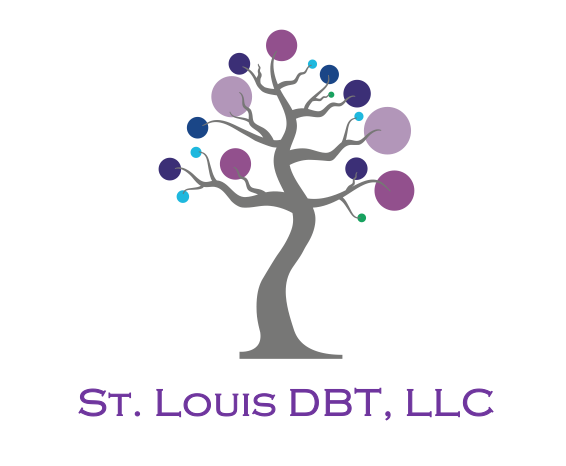Riding Out the Storm:
An educational and supportive course for loved ones navigating the storms of intense emotions, unpredictable behaviors, and turbulent relationships.
If you have a person with extreme emotion dysregulation in your family, YOU are on the frontlines.
You may find yourself constantly bombarded with anger outbursts you can’t identify the cause or origin of. You watch your loved one spiral day after day and anytime you offer a fix, they seem to spiral faster and further. You may fear coming home, not knowing which version of your loved one you are going to find there. While your loved one’s therapist or doctor gets to “set boundaries” and take breaks, you are never off duty. You need respite, validation, and answers.
St Louis DBT provides family programming to ANY family (all definitions and structures of families) who are hoping to grow and heal wounded relationships, learn how to understand one another, manage conflict and communicate effectively.
No matter how you are involved in your loved one’s treatment, research demonstrates that getting peer support for yourself, learning about the disorder(s), understanding the origins of problem behavior, and learning new ways to cope and support your loved one can improve outcomes, reduce relapse, and increase medication and treatment compliance.
Cost is $50 per session/week. A $25 registration fee is required upon sign-up tp hold your spot in the class. We offer a 5% discount if you pay for all sessions upfront.
Next Class Starts October 23, 2025
Thursdays, 3-4pm, Virtual via Zoom
Join from anywhere!
8 Sessions
Families and loved ones of people in treatment for Intense Emotion Disregulation (including, Borderline Personality Disorder, or BPD) often need support themselves.
Many have been blamed for their loved one’s diagnosis and do not feel that there is a safe and non-judgmental place to go for that support. At St. Louis DBT, we believe that families are the most effective tool for positive change. We believe families are intelligent, competent, compassionate, and capable of effecting major changes that could transform not only the identified patient, but also the dynamics of the family for generations to come.
You may be exhausted, angry, scared, hopeless, and overwhelmed. Don’t sit in this alone. There is power in numbers and there is empowerment in knowledge.
Understanding emotions disregulation challenges, including BPD and its origins, is critical to living with it. Learning the skills your loved one is (or could be) learning in therapy is incredibly valuable in order to coach and support them in creating behavioral change. Incorporating new ways of validating their experience will lead to improved relationships and living conditions. In this group, we strive to help families and friends of people with emotion disregulation challenges better understand their emotions and behavioral urges and empower them to support their loved ones in helpful ways.
Our class is here to empower you through education and research surrounding big emotional expressions and how to best support your loved one who may be struggling with anxiety, impulse control, BPD, depression, and many other mental health diagnoses.
What will I learn from this class?
Knowledge is power. When we understand our loved ones and why they do what they do or say what they say, we have the power to respond in a way that is helpful rather than harmful. Participants in this class will learn more about the following:
Understand Pervasive Emotional Disregulation (including Borderline Personality Disorder): Where it comes from and how emotional brains work differently.
Emotion Dysregulation: What it means and why it matters.
Dialectical Behavior Therapy (DBT): How it helps in treating emotional and behavioral disregulation.
Mindfulness: Exploring its role in impulse control, emotion regulation, and problem-solving.
Using Acceptance Skills, including validation to de-escalate volatile emotions and reactions.
Navigating Intense Emotions: Recognizing, responding, and de-escalating.
Positive Change Strategies: Reinforcement, punishment, extinction, and teaching effective coping mechanisms.
Shaping New Behaviors: Use behaviorism to change negative patterns
DBT Skills that assist people with extreme emotional sensitivity in the areas of Interpersonal Effectiveness, Emotion Regulation, and Distress Tolerance.
Crisis Intervention: Responding to intense emotional states and finding support during difficult times.

